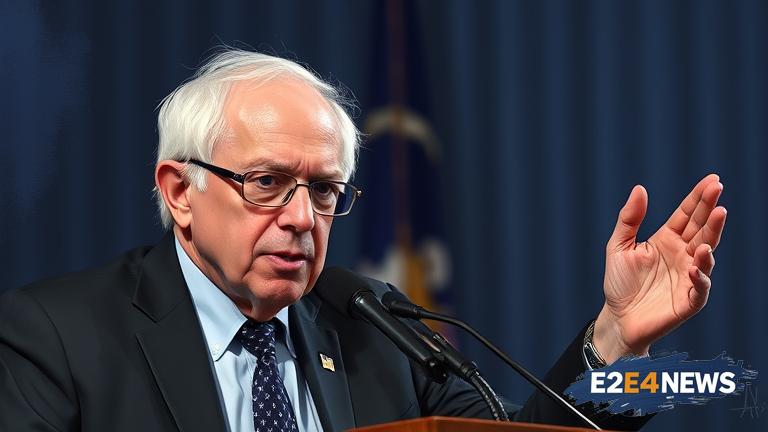Senator Bernie Sanders has recently initiated an investigation into the criticisms made by Robert F. Kennedy Jr. regarding vaccine access. This move comes amidst growing concerns about the spread of misinformation related to public health. Kennedy Jr., a well-known advocate for vaccine skepticism, has been vocal about his opposition to mandatory vaccination policies and has made several claims about the safety and efficacy of vaccines. Sanders’ investigation aims to examine the validity of these claims and their potential impact on public health. The senator’s decision to launch this probe has been met with both support and criticism, with some hailing it as a necessary step to combat misinformation and others seeing it as an attack on free speech. The investigation is expected to shed light on the complex issues surrounding vaccine access and the role of misinformation in shaping public opinion. As the probe gets underway, it is likely to spark a heated debate about the balance between individual freedom and collective responsibility when it comes to public health. The COVID-19 pandemic has highlighted the importance of vaccination in preventing the spread of infectious diseases, and the need for accurate information to inform public health policy. Kennedy Jr.’s claims have been widely debunked by the scientific community, but they continue to find traction among some segments of the population. The investigation will likely examine the sources of funding for Kennedy Jr.’s advocacy group, Children’s Health Defense, and the extent to which it has influenced public opinion on vaccine-related issues. It will also look into the role of social media platforms in amplifying misinformation about vaccines. The probe may also investigate the potential links between Kennedy Jr.’s advocacy group and other organizations that have been involved in the spread of misinformation about vaccines. As the investigation progresses, it is expected to provide valuable insights into the complex web of factors that contribute to the spread of misinformation about public health issues. The findings of the investigation will likely have significant implications for public health policy and the ways in which misinformation is addressed. In recent years, there has been a growing recognition of the need for a more nuanced approach to addressing misinformation, one that takes into account the complex social and psychological factors that contribute to its spread. The investigation into Kennedy Jr.’s claims is a significant step in this direction, and its findings are likely to inform the development of more effective strategies for combating misinformation. The probe is also likely to highlight the importance of critical thinking and media literacy in evaluating the credibility of sources and the accuracy of information. As the investigation gets underway, it is likely to attract significant attention from the media and the public, and its findings are likely to be widely debated. The investigation is a timely reminder of the need for ongoing vigilance in the face of misinformation and the importance of protecting public health. It is also a testament to the commitment of Senator Sanders to ensuring that public health policy is informed by the best available evidence. The investigation will likely be watched closely by public health experts, policymakers, and the general public, and its findings are likely to have a significant impact on the ongoing debate about vaccine access and misinformation. In conclusion, the investigation into RFK Jr.’s attacks on vaccine access is a significant development in the ongoing effort to combat misinformation and protect public health. It highlights the importance of critical thinking, media literacy, and the need for ongoing vigilance in the face of misinformation. As the probe progresses, it is likely to provide valuable insights into the complex factors that contribute to the spread of misinformation and the ways in which it can be addressed.
